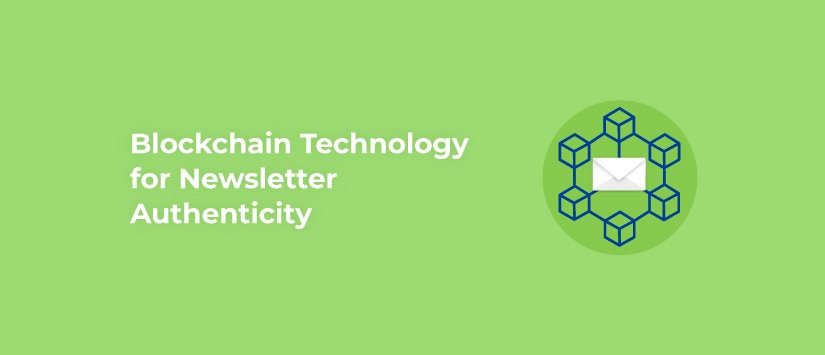Category: Email Marketing Trends

Authenticity and trust are fundamental pillars of communication. Email, as a means of communication, is not exempt from challenges related to authenticity and security. This is where blockchain technology emerges as a possible solution to guarantee the authenticity and integrity of newsletters.
Imagine a giant ledger that is open to everyone and where everyone can see all transactions made. This ledger is not controlled by a single person or entity, but is distributed among many different people (called nodes) who have a copy of it. Each time a new transaction is added, all participants in the network verify and agree that the transaction is valid. Once everyone agrees, the transaction is added to the ledger in a new "block", and this block is joined to the existing blockchain.
The main characteristics of blockchain technology are:
These particularities make this technology very useful for creating digital proofs (certificates) to verify the authenticity and integrity of an email, document, transaction or communication.
A certified email is an email message that guarantees the authenticity and integrity of the communication.
This type of email provides a means of assuring the recipient that the message is from a legitimate source and has not been altered during delivery. Certified emails are commonly used in contexts where security and verification of the sender's identity are crucial, such as in legal communications, financial transactions and official notifications.
Certified email provides verifiable proof that the recipient has a:
In addition, it certifies:
This evidence is collected by the sending platform and generates an evidentiary document with all the certified information that has legal validity.
The main disadvantage of using certified emails, beyond the cost or technical complexity, lies in the dependence on a single external provider. The effectiveness and security of the service is highly dependent on the provider. If the provider experiences technical problems or ceases operations, access and reliability of the service may be affected. The same is true if the digital certificates used to sign emails are revoked. Therefore, it is crucial to choose reliable providers to ensure continuity of service and long-term retention of records.
In the case of blockchain-certified emails, we are not dependent on a single provider or a central certification authority, as the decentralised, immutable and transparent structure of the blockchain is used to secure and validate the information.
When an email is sent, a hash of the content is generated, which is like a digital fingerprint of the content. This hash is stored on the blockchain, along with a timestamp and the sender's digital signature, which ensures the integrity and authenticity of the email.
This information is distributed across multiple nodes, which means that there is no reliance on one provider or a single central authority for validation, the information is accessible to all, and the authenticity of emails can be verified without the need for intermediaries or special tools.
Although decentralisation and the use of blockchain has great advantages, it is not without its challenges and problems:
Blockchain technology is not only useful for certifying emails, it can also have other interesting applications. For example, it can be used to improve the double opt-in process of our subscribers. When a subscriber signs up to our newsletter, we can record in one transaction the email and time they requested the subscription and, in another transaction, when they clicked on the link and confirmed the subscription. The immutable nature of the blockchain ensures that these records cannot be altered, providing reliable and transparent proof of user consent.
Blockchain technology represents a fascinating innovation. Its ability to provide immutability, transparency and decentralisation can transform the way we manage and verify digital communications. However, despite its many benefits, the widespread adoption of blockchain faces several challenges. Technical complexity, scalability issues, variable transaction costs and the need for further regulatory development are significant barriers. As the technology matures and there is wider adoption, we are likely to see wider and more widespread use of blockchain in email marketing.
For now, while its potential is enormous, practical implementation in this area still requires time and effort.
Do not miss anything from our blog and join our Telegram https://t.me/acrelianews
Haven't you tried Acrelia News yet?
If you like this post, you will like much more our email marketing tool: professional, easy to use.